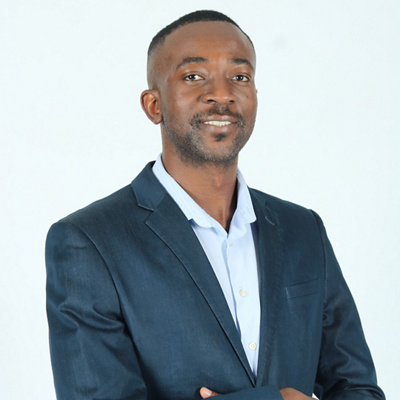To mark Africa Day, a young Namibian doctor who’s in South Africa on a Mediclinic bursary explains why he’s grateful for the opportunity and eager to bring back his skills to his home country.

“Despite these big challenges, I'm not discouraged and I'm not pessimistic. If we work together and we're intentional about what we’re trying to do and what our roles are, we can expect positive results.” - Dr Victor Vining Ojo

Namibian Dr Victor Vining Ojo is furthering his studies as a general surgeon at the University of Witwatersrand, thanks to Mediclinic’s bursary programme which forms part of the Group’s ongoing commitment to enhancing the quality of life and to also contribute meaningfully to transformation. By enabling opportunities for sub-specialist training, Mediclinic addresses the urgent need for healthcare expertise in outlying areas.
Dr Ojo says he is both grateful and empowered by this assistance: “‘Haba na Haba’ is a Swahili saying that means ‘little by little, the container gets filled’. I find this an inspiring proverb because in Africa we face many challenges. While it’s impossible for one person to solve these problems, I believe if we all do our bit, little by little we can exert a positive influence on the continent.”
Africa experiences many pressing healthcare issues. In the state sector especially, there are limited human resources. In the public sector in Namibia, they face many challenges including human resources – doctors, nurses and allied professionals – which places a burden on the provision of healthcare. There’s also a desperate need to maintain existing equipment and machines.
In areas where there isn't sufficient access to healthcare, people may not get the treatment they need. This includes everything from consultations, interventions, medication, or procedures. These patients must then travel to bigger cities to receive care, which entails travel costs, extra expenses and inconvenience. The delays also mean doctors are unable to treat them optimally if their condition is already advanced. Often, early treatment would have prevented the progression of the disease
Promoting awareness
In addition, awareness of healthcare in Namibia and other parts of the continent needs to improve. Cultural beliefs often prevent people from seeking medical care until very late in their illness. Many feel conditions such as HIV or mental health issues carry a stigma, and that seeking care will lead to them being ostracised. “As healthcare professionals, we need to promote awareness in communities, so people don’t delay coming to hospital,” says Dr Ojo.
“Despite these big challenges, I'm not discouraged and I'm not pessimistic,” he adds. “If we work together, and if we're intentional about what we’re trying to do and our roles, we can expect positive results – and we should push for that.
“Mediclinic is assisting hugely by facilitating further training for me and many other young healthcare professionals. Having access to healthcare – and to as many healthcare professionals in different fields and specialities as possible – contributes to the overall health of the community. When people are healthy, they are able to work. This in turn has a positive impact on the economy and on families. Mediclinic is helping make that a reality.
Sharing expertise
“Namibia is where I grew up – it’s home. But I'm in South Africa to improve my skills and complete my training. As a qualified general surgeon, I’ll return home to share my expertise and make a positive contribution. My speciality is interesting in that general surgeons deal with a wide variety of conditions and have a direct impact on our patient’s outcomes. In other words, patients come in with a particular condition, go to theatre, have their operation, and the results are immediate. That’s what makes it so rewarding. But we need more general surgeons in Namibia to alleviate the burden of disease.
“South Africa, Namibia and the rest of Africa face very big healthcare challenges. Mediclinic’s financial assistance for doctors’ training is a valuable contribution towards alleviating these challenges. In turn, I aim to do the best I can within my ambit of control. I believe everyone should aim to contribute positively to their communities. If enough people are keen to do their part, we will have only positive outcomes.”
